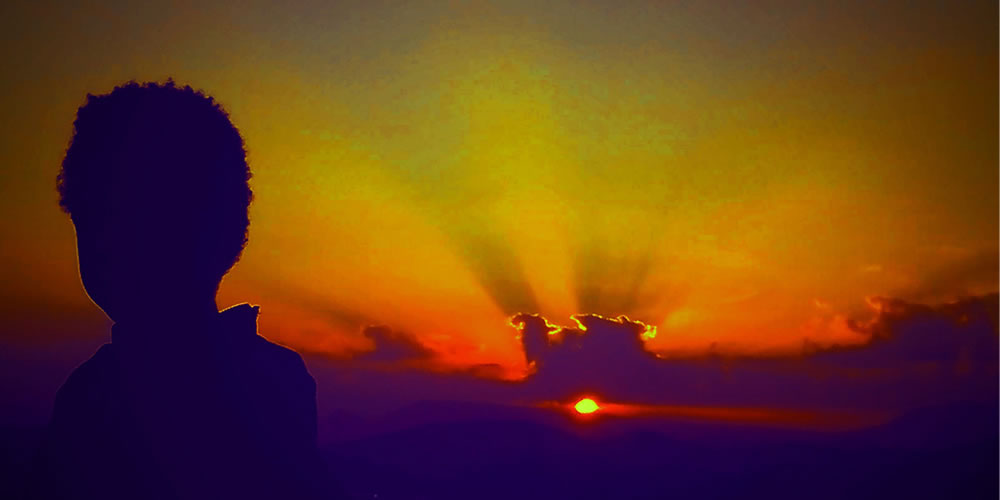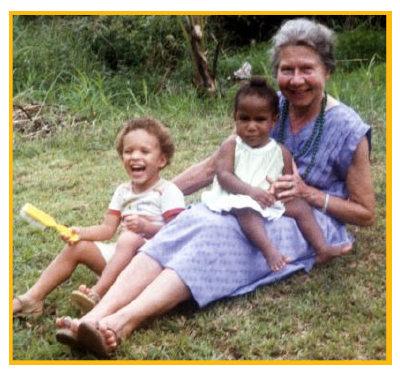The Will of God revealed to mankind, have been to unite the
hearts and accelerate the material and the spiritual progress
of the human race.
“O ye children of men! The fundamental purpose animating the Faith of God and His Religion is to safeguard the interests and promote the unity of human race, and to foster the spirit of love and fellowship amongst men……”
— BAHÁ’U’LLÁH
HISTORY OF THE BAHÁ’I FAITH IN PAPUA NEW GUINEA
The Bahá’i Faith arrived in Papua New Guinea in 1954. Sr Violet Hoehnke of Australian origin was the first pioneer and the first to reach the shores of Papua New Guinea arriving at the Admiralty Island and taught the Bahá’i Faith to a first Papua New Guinean man Apelis Mazakmat, a teacher and a respected community leader from New Ireland Province. He was so inspired and attracted by the teachings of the Faith when introduced to him. When told about the teachings of the Bahá’i Faith he said; “This is what my people need, something to unite them.”
Its teaching includes:
- Oneness of God – there is only one God.
- All religions share a common foundation
- Mankind is one. People of all races, nations, economic groups and religious backgrounds are equal in the sight of God.
- Independent investigation of the truth – each individual is responsible for investigating the truth for himself.
- Harmony of Science and Religion
- Equality of men and women
- One universal auxiliary language
- Spiritual solution to economic problems
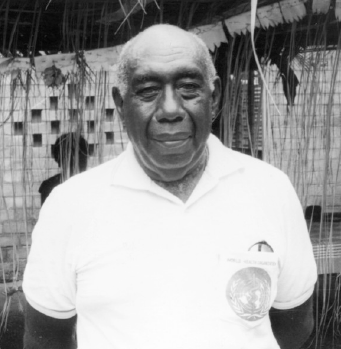 Apelis Mazakamat: The first Papua New Guinean Bahá’í
Apelis Mazakamat: The first Papua New Guinean Bahá’í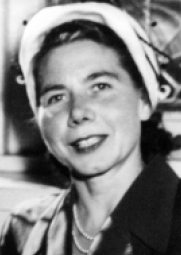 Violet Hoenke: First International Female Bahá’í Pioneer to PNG
Violet Hoenke: First International Female Bahá’í Pioneer to PNG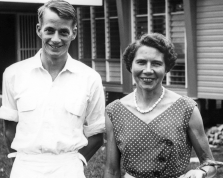 The First Bahá’í International Pioneers into Papua New Guinea
The First Bahá’í International Pioneers into Papua New Guinea
THE ADMINISTRATIVE INSTITUTION OF THE BAHÁ’I FAITH IN PAPUA NEW GUINEA
In the Bahá’í Faith there is no clergy or priests. No individual holds power or authority. Instead, authority is vested in the institutions, which include elected-bodies at the local and national level. Elections are held via secret ballot and in a very reverent and thoughtful manner where electioneering and campaigning are prohibited. Individuals are elected for their qualities of character and experience.
At the local level, there are now more than 100 Local Spiritual Assemblies across the country which are each made up of 9 elected members. At the national level, the community's affairs are governed by the National Spiritual Assembly, which is also composed of 9 elected members. The first National Spiritual Assembly was formed in 1969.
At the international level, the Universal House of Justice is the Supreme Governing Body for the worldwide Bahá’í Community.
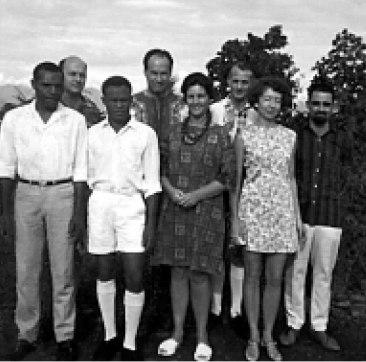 The First National Spiritual Assembly Members of PNG
The First National Spiritual Assembly Members of PNG

